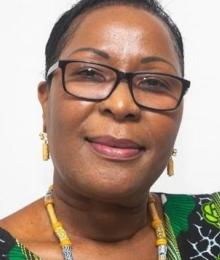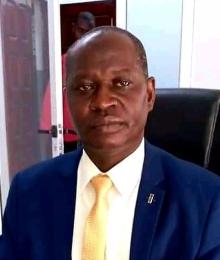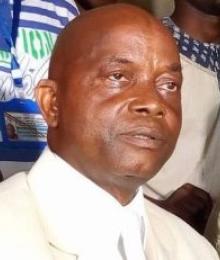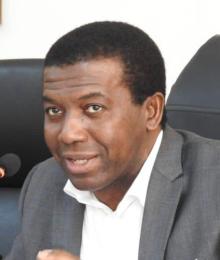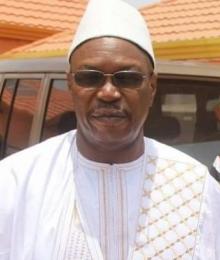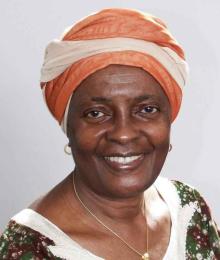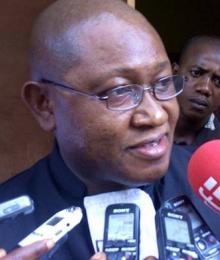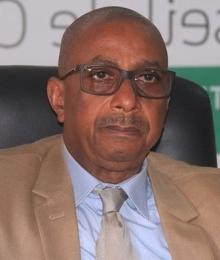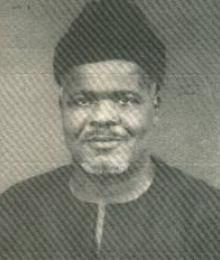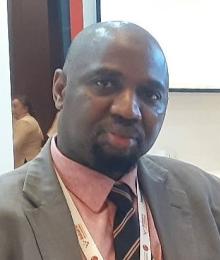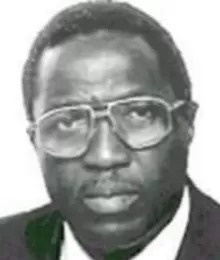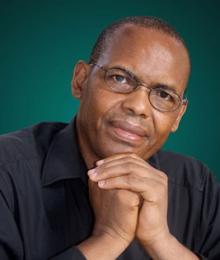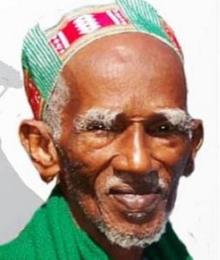
Ibrahima Kaba Bah (1931-2023) was a distinguished Guinean professor of physics and chemistry, trade unionist, and intellectual from Labé. He served as the director of the École Normale de Kindia and later as a teacher at the Institut Polytechnique Gamal Abdel Nasser in Conakry. Due to his union activities under the repressive regime of Sékou Touré, he was imprisoned for six years at Camp Boiro.
A witness to and defender of Guinea's independence in 1958, he was also a writer and translator in the Pulaar language, actively contributing to the cultural preservation of his country.
Married to Professor Diallo Aminatou and father to several children, including the founder of Guineenews.org, he left a lasting legacy in Guinean education, recognized by having a public high school named after him. His life, marked by resilience against political oppression and dedication to education, embodies the journey of a major intellectual figure who lived through the tumultuous periods of Guinea's contemporary history.
Introduction
Ibrahima Kaba Bah, a distinguished Guinean professor and trade unionist, was born in 1931 in Labé, a mountainous region of Fouta-Djalon in Guinea. His remarkable journey as an educator, activist, and a resilient figure against political repression makes him an iconic figure in Guinea's contemporary history. He passed away on October 24, 2023, at the age of 92 in his hometown, leaving behind a significant intellectual and moral legacy.
Education and Early Career
After completing his primary education in Labé, Ibrahima Kaba Bah pursued higher studies in Nancy, France. This high-quality education allowed him to specialize in physics and chemistry, disciplines he would passionately teach throughout his career.
Upon his return to Guinea, he joined the teaching profession and quickly rose through the ranks. His competence and dedication led to his appointment as the director of the École Normale de Kindia, a key institution in training Guinean teachers.
The Turning Point of 1961
The year 1961 marked a dramatic turning point in Ibrahima Kaba Bah's life. While leading the École Normale de Kindia, a student uprising broke out against President Sékou Touré. The president, perceiving a threat within the educational sector, shut down the institution and launched a wave of repression against teachers, accusing them of plotting against the regime.
As an active member of the Syndicat des Enseignants de la République de Guinée (Teachers' Union of the Republic of Guinea), Ibrahima Kaba Bah was arrested and transferred to Camayenne Camp, which later became the notorious Camp Boiro. Following a trial widely seen as a travesty of justice, he was sentenced to six years in prison alongside other trade unionists like Keïta Koumandian.
These convictions triggered a widespread revolt among Guinean students, which was harshly suppressed by the regime. This challenging period highlighted Ibrahima Kaba Bah's commitment to freedom of expression and teachers' rights, a cause for which he sacrificed his personal liberty.
Academic Career
Released in 1966 after serving his sentence, Ibrahima Kaba Bah remained undeterred. He was assigned to the Institut Polytechnique de Kankan, where he resumed his teaching career. However, his life continued to be marked by the political instability of Sékou Touré's regime. In 1971, he was briefly arrested during a significant political purge.
In 1972, following the death of his uncle Baldé Chaïkou, the patriarch of the N'Duyèbhé family of Labé, he returned to his hometown. Two years later, in 1974, due to a confidential report by Aboubacar Somparé, he was transferred to the Institut Polytechnique Gamal Abdel Nasser of Conakry. At this prestigious institution, he continued his educational work before being appointed as the first director of the Guinean Copyright Office, a role that recognized his expertise and integrity.
Witness and Actor of Independence
Ibrahima Kaba Bah was a privileged witness to Guinea's independence, a historic event he spoke of with pride and precision. In a 2022 interview with Guineematin.com, he recounted the circumstances of Guinea's "No" to the referendum proposed by General de Gaulle on September 28, 1958:
"On September 28, we voted, counted the ballots, and found a majority of 'No' votes."
For him, this historic decision was above all a choice of dignity:
"To become free and autonomous, Guinea opted for 'No' on September 28, 1958, demanding its independence and sovereignty. There is no dignity without freedom."
Responding to critics who considered Guinea's independence premature, he asserted:
"Those who say Guinea was wrong to demand independence in 1958 are mistaken. We had wanted independence for a long time. [...] We are proud of this independence because Guinea's independence accelerated the liberation of other countries. Just two years later, other African colonies followed Guinea's lead to claim their sovereignty."
Intellectual and Cultural Contributions
Beyond his commitment to teaching and unionism, Ibrahima Kaba Bah made a lasting impact on cultural preservation. A prolific author, he wrote several works in the Pulaar language, contributing to the preservation and dissemination of this West African language.
His works included translations of major French literary texts, making them accessible to Pulaar-speaking audiences. He also authored the biography of Elhadj Bah Thierno Abdourahamane, a former Guinean Minister of Religious Affairs, enriching historical documentation on the country's political and religious figures.
Recognition and Legacy
Ibrahima Kaba Bah's importance in Guinea's educational and intellectual landscape was recognized during his lifetime. In 2020, former President Alpha Condé honored him by naming the only public high school in the commune of Ratoma after him, immortalizing his contribution to national education.
His influence extended beyond the educational field, as evidenced by frequent references to him in presidential speeches. He is regarded as part of an exceptional generation of Guinean intellectuals, alongside figures like Koumandian Keita, Mamadou Traoré Ray Autra, Djibril Tamsir Niane, and Sow Moumini.
Personal Life and Family
Settled in Labé during his later years, Ibrahima Kaba Bah remained dedicated to education, managing the private school of Télidjé.
He was married to Diallo Aminatou, herself a retired professor and a prominent figure at the Guinean university. Together, they had five children: Bah Thierno Lamine, Bah Boubacar Kaba (founder of the news website Guineenews.org), Bah Moussadighou (deceased), Bah Misbahou, Bah Khalirou, and Bah Marlyatou.
A Lasting Legacy
The death of Ibrahima Kaba Bah on October 24, 2023, in Labé marked the end of an extraordinary life, yet his influence endures through the generations of students he mentored, his writings, and his example of courage in the face of political adversity.
A symbol of intellectual resistance, a dedicated teacher, a defender of union rights, and a guardian of culture, Ibrahima Kaba Bah embodies the values of integrity, perseverance, and commitment to education that continue to inspire modern Guinea.
His life, marked by pivotal moments in Guinean history—from independence to the repressive years under Sékou Touré—makes him not only a witness but a crucial actor in the nation's construction. His remarkable journey reminds us of the critical role educators play in a nation's development and the preservation of its fundamental values.











